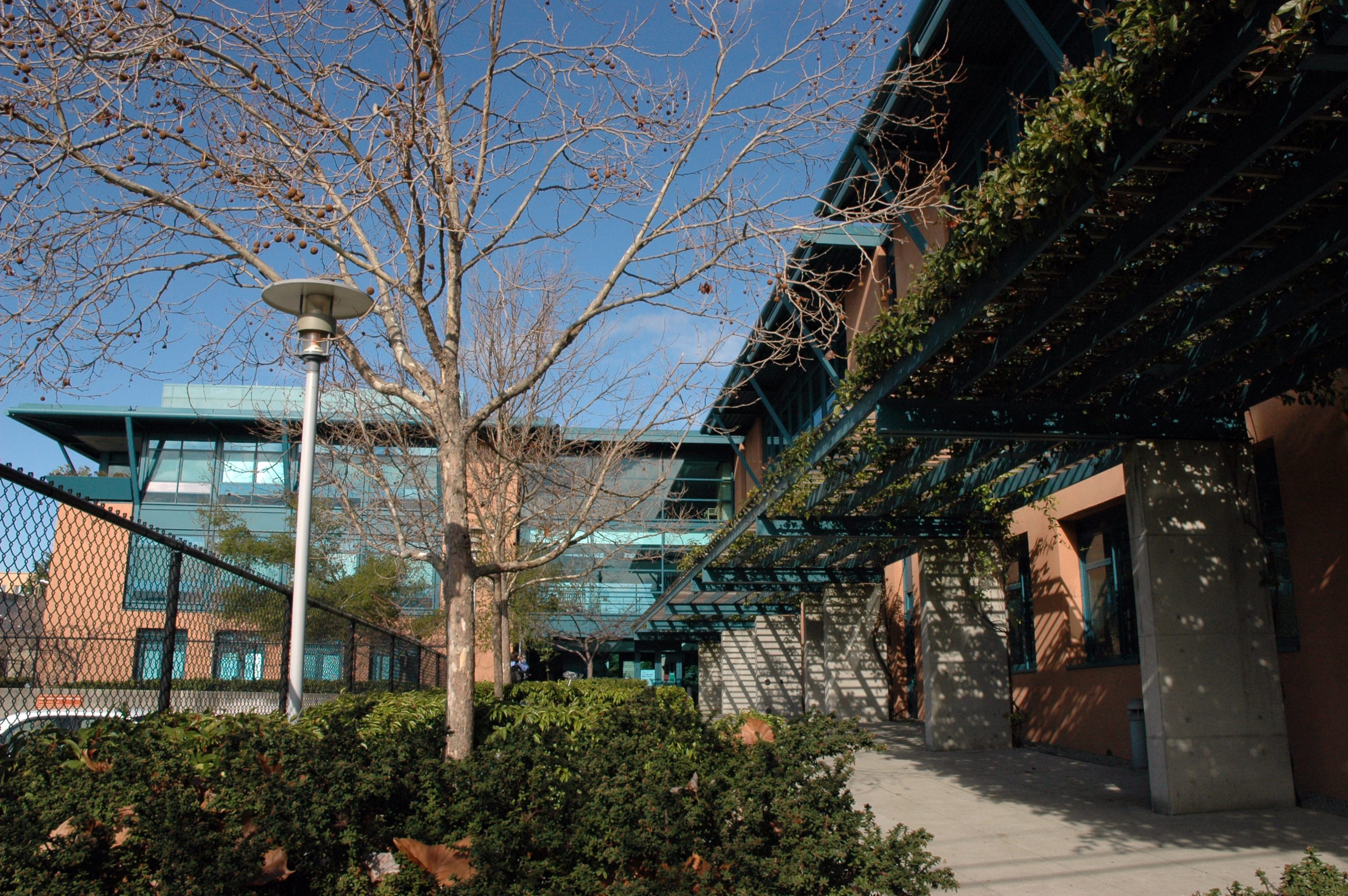Alumni Relations
So much of the Berkeley Haas experience is the #haasome individuals that you meet and stay in touch with after graduating. Composed of lifelong learners, friends, and colleagues, the Berkeley Haas Alumni Network is your community, your tribe. We celebrate the strength of the alumni network and encourage you to connect with and pour yourself into the community. Berkeley Haas alumni find strength in one another.
Berkeley Eats and Groceries
Local Eats
Breakfast/Brunch
- Bartavelle – West Berkeley – great food and coffee
- Berkeley Social Club – Downtown Berkeley – trendy and delicious brunch
- The Butchers Son – Downtown Berkeley (vegan and raw food)
- Gather – Downtown/Central Berkeley – delicious food, relaxed atmosphere
- La Note – Berkeley – cute outside patio and good food
- Betty’s Ocean View Diner – Berkeley – pretty view of Berkeley
- Cafe Gratitude – Berkeley – vegan and raw food
Dinner
- Blind Tiger – Oakland – trendy atmosphere, great food
- Mua – Oakland – trendy warehouse-style restaurant, lots of tapas options
- Tigerlilly – North Berkeley – delicious Indian food with a unique twist, unique cocktails, also a go-to for brunch (tikka chicken and waffles!)
- Daughter Thai Kitchen – Oakland – unique and yummy Thai, foodie destination
- Cafe Tibet – Berkeley – Himalayan/Nepalese
- La Marcha Tapas Bar – date night spot, get the sangria!
- Taste of the Himalayas – North Berkeley – tasty curries
Lunch
- Lucky Bird – Berkeley – Thai chicken-focused menu, tasty Thai desserts
- Epicurious Garden – North Berkeley – small food hall with an upstairs patio and tea garden
- Gregoire – North Berkeley – fresh and seasonal sandwiches and plates, try the potato puffs!
- Saul’s – North Berkeley – soups, sandwiches, and desserts
Breweries
- Modern Times – Oakland – popular San Diego-based brewery, fun and colorful taproom
- Fieldwork Brewing – West Berkeley – they have mastered hazy IPAs!
- Gilman Brewing – Central Berkeley – darts, cornhole, and tasty brews
- Drake’s Dealership – Oakland – a staple in East Bay
- Temescal Brewing – Temescal – large indoor and outdoor taproom, dog-friendly, and food trucks every night!
- Sierra Nevada Torpedo Room – West Berkeley – huge pours for tasters!
Bars
- Freehouse – Downtown Berkeley – a standard Berkeley bar
- Pacific Standard Tap Room – Downtown Berkeley – small taproom, great beer section
- Triple Rock Brewery & Ale House – try the Monkey Beer on Thursday nights!
- The Albatross Pub – West Berkeley – huge pub, clean, lots of beers on tap, pool/darts
- Prizefighter – Emeryville – upscale bar with great cocktails
Pizza
- Zachary’s – Oakland, Berkeley – deep dish to die for
- Little Star/The Star – San Francisco, Albany, San Francisco – a local favorite
- Artichoke – Berkeley – NY-based pizza, buy by the slice
- Cheese Board Pizza – North Berkeley – famous pizza spot, vegetarian
- Gioia – West Berkeley – get the fungi pizza!
Dessert
- Cinnaholic – Berkeley – make your own cinnamon roll
- Lush Gelato – North Berkeley – gelato spot in Epicurious Garden
- U:Dessert Story – North Berkeley, San Francisco – Asian fusion desserts
- Amausaan uji Matcha – North Berkeley – matcha desserts
Study/Working Cafes & Coffee Shops
- Cafe Nostos – Berkeley – open space, great Mediterranean food
- Wrecking Ball Coffee – North Berkeley – cool atmosphere, good coffee
- Victory Point Cafe – North Berkeley – lots of tables, big menu with wine and beer
- Romeo’s – Berkeley – sweeter drinks, many tables/working spaces
- Hayward Public Library – Hayward – a newly renovated and modern library, huge space with a cafe
Groceries
Local Grocery Stores
- Berkeley Bowl – independent grocery store only found in Berkeley – aka the best grocery store ever – $$
- Trader Joes – grocery chain with a variety of signature items, plus produce, dairy, and more – pick up your 2-buck Chuck (wine)- $$
- Whole Foods – eco-minded chain with natural and organic grocery items, housewares, and other products – discounts provided to Amazon Prime members – $$$
- Costco Wholesale – members-only warehouse – get a $1 hot dog/churro, a $9.99 large pizza, and cheap gas before you leave – $$
- 99 Ranch Market – Asian supermarket chain carrying imported specialty foods plus meat, seafood, produce, and baked goods – pick up baked goodies at Sheng Kee Bakery and tea at Ten Ren Tea Co before heading back to the car – $$
- KP Asian Market – market for Korean groceries and deli fare including kimchi, plus housewares – check out the home goods section! – $
- Tokyo Fish Market – Japanese seafood specialist also offering a full selection of produce, prepared foods, and dry goods – $$
- Monterey Market – sustainable produce market offering seasonal, organic fruits, vegetables from local farms – $$
- Mi Tierra Foods – Mexican grocery store – $$
- Safeway – supermarket that carries all the necessities – $$
- Target – one-stop-shop for household items and food – $$
Health Services
Getting sick happens. And while we hope you don’t get sick, when you do, University Health Services at the Tang Center provides medical and mental health resources to support you.
Whether you need an advice nurse, nutrition counseling, or sexual health care, on-site appointments and resources are available for you there. They also offer comprehensive COVID-19 prevention and testing resources.

You can access all of these services through the eTang portal.
University Health Services is located in the Tang Center at 2222 Bancroft Way in Berkeley.
- Advice Nurse: 510-643-7197
- After-Hours for Medical and Counseling Services: 510-643-7197
Mental Health Services
University Health Services also offers mental health services to all UC Berkeley students, regardless of insurance plan.
There are many resources to help your emotional wellness, including on-campus, off-campus, online, and community-specific resources. Check out their website to learn more.
- Counseling Services: 510-642-9494
- After-Hours for Medical and Counseling Services: 510-643-7197
- Resources to Respond to Sexual Harassment for Students, Staff, and Faculty
Mental Health Resources at Haas
Additionally, Dr. Don Capone, a UC Berkeley licensed psychologist, holds regular office hours at Haas in F408. If you’re in need of a consultation, regular counseling sessions, or referrals, please contact him at [email protected] or 510-642-4853 to arrange an appointment. His services are free and confidential.
More information about the services available to you through UC Berkeley’s Counseling and Psychological Services can be found on their website.
Disabled Students Program
The Disabled Students Program provides disabled students with the appropriate accommodations and services needed to achieve their academic goals.
Program assistance includes: DSP TRIO, Spectrum Connect, career services, and student development.
Student Parents Resources
Berkeley Haas is a place that is welcoming of students with families. We have a variety of events that are open to partners and children, and encourage student-parents to take advantage of the myriad of resources available through the greater UC Berkeley campus community. We also have an active Partners group and the Bear Cubs, which are both dedicated to supporting our MBA families.

Other resources:
- Graduate Division Student Family Assistance Resource List
- Student Parent Center Graduate Resource List
- University Health Services Childcare Resource List
In addition, any questions related to the resources or policies regarding student-parents can be directed to the Student Life & Leadership Development team.
Breastfeeding Support for Students and Partners
The Breastfeeding Support Program (BFSP) is sponsored by University Health Services – Health*Matters, the worksite wellness program. The BFSP serves faculty, staff, students, and their spouses/domestic partners who choose to continue breastfeeding after returning to work or school. The program includes:
- Personal, electric breast pumps and personal kits sold at cost.
- Lactation rooms on campus (including at Haas).
- Breastfeeding classes facilitated by a certified lactation consultant.
Other useful links for Parents
Berkeley Parents Network is a parent-to-parent email network for the community of parents in the Berkeley area.
CareBubbles (parent-to-parent resource to help UC Berkeley, UC Davis, UC San Francisco, and UC Santa Cruz community members meet their child care needs. Find other families looking to trade childcare, share tutors, create bubbles, and more.)
Early Childhood Education Program (high-quality early childhood services to more than 200 infants, toddlers, and pre-school children of students, faculty, and staff at several centers in Berkeley and Albany)
UC Berkeley Parents Slack Channel (an open Slack channel slack designed to help parents at UC Berkeley share advice and make connections)
Families Matter Brochure: A Resource Guide for Student Parents (PDF)
Financial Aid
The Haas Financial Aid Office at the University of California, Berkeley exists to help students efficiently secure the best federal, institutional, and outside funding to achieve their degrees.
Please review the main webpages under the Financial Aid tab and the web pages under the tab applicable to your program for the estimated costs, types of aid available, and financial aid application procedures.
We are committed to assisting students explore all the financing options available and in doing so, building a financial bridge to your academic endeavors. During your experience at Berkeley Haas, our office is your main point of contact, rather than the University’s Financial Aid and Scholarships Office.
6-unit minimum for loan disbursements
Students must be enrolled in at least 6 units for the term in which they wish to receive any loan disbursements. If you are initially in at least 6 units and then drop to below 6 units at the end of the add/drop period, any loans that disbursed for that term will subsequently be returned. You would consequently be responsible for repaying the returned amount to CalCentral.
A note about Satisfactory Academic Progress
To maintain eligibility for federal and institutional aid, you must maintain Satisfactory Academic Progress (SAP). All graduate students are expected to maintain a minimum cumulative grade-point average of 3.0 for continued participation in the program and graduation. If your GPA falls below the minimum, you will be placed on academic probation and may become ineligible for the undisbursed portion of any federal loan. Further, students must successfully complete at least 6 units each term that they are enrolled.
GSI Information
If you are a UC Berkeley student interested in a position at Haas, please use this information to guide you through the process.
Long Business Library
The Thomas J. Long Business Library is your hub for business information at UC Berkeley. We’ll help you find company, industry, and financial market data for your coursework, research, or job search.
Business News Subscriptions
Click here for Haas Business News Subscriptions.
Lost and Found
Lost something at Haas? Email [email protected] or walk over to S545!
Student partners resources
Heath Care for Dependents
Berkeley SHIP offers comprehensive medical, behavioral health, dental and vision insurance for both you and your family! We also provide care at the Tang Center for dependents 18 and over who are currently on SHIP for urgent care, vaccinations, and more.
https://uhs.berkeley.edu/insurance-ship/insurance-dependents
Haas Partner Community
As a member on this journey for your partner’s MBA, you’ll find that there are many resources and support systems for you as well. Be sure to register for membership into the Partners Club to participate in their events such as happy hours, coffee meetups, trivia nights, and more!
Partners are welcome to attend many events at Haas. If an event is open to the public, simply register via Campus Groups to attend!
https://haas.campusgroups.com/partners/about/
Support for Student Parents & Caregivers
Student parents make up about 10% of Berkeley’s graduate population, and we are committed to helping students meet their family obligations while pursuing academic goals. You will find information about childcare, grants, and parent support groups here!
https://grad.berkeley.edu/financial/options-for-financial-support/families
Frequently Asked Questions
Q: Can my partner join the Cal Gym with Berkeley Recreation Sports?
A: Non-students are welcome to join BRS by purchasing a membership! See this link for more information: https://recsports.berkeley.edu/memberships/
Q: Can my partner audit classes, or utilize the Career Management Group?
A: Unfortunately, these are student-only resources, but you will find there are many other resources for partners to participate in.
Q: What can I do in and around Berkeley with my family?
A: You’ll find there is a seemingly endless supply of activities for the whole family! From museums and parks to gyms, you’ll find that many offer discounts or free access to UC Berkeley students and their children. Family Friendly Landmarks https://studentparents.berkeley.edu/resources/family-friendly-landmarks
